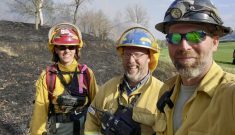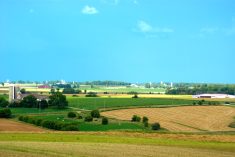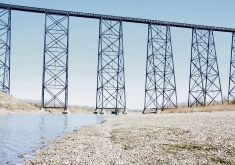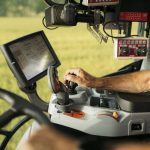A Guelph start-up has developed a tool to help in the fight against COVID-19 using technology from two of its smart livestock monitoring applications.
Virtual Studios founder Joel Sotomayor says their Tactical Response Against COVID-19 Epidemic (TRACE) solution can help maintain essential services and reduce disease spread by letting employers locate and isolate COVID-19 on their farms, processing facilities or other settings.
The technology would also be ideally suited to any essential businesses that need to operational during the COVID-19 crisis and could help public health officials with contact tracing, which is important in breaking the chain of virus transmission.
Read Also
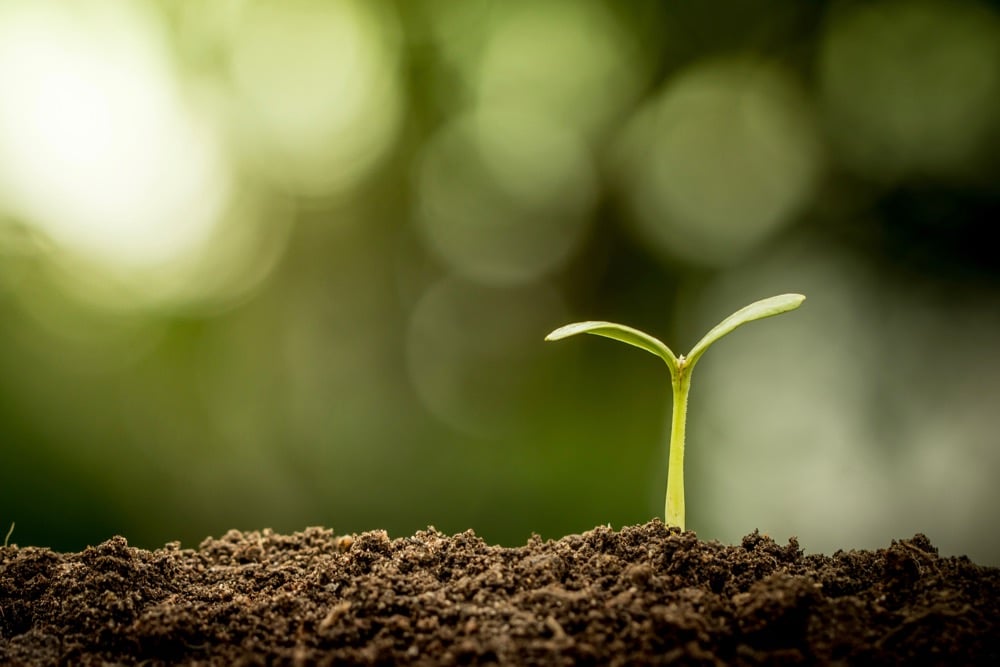
Ontario’s agri-food sector sets sights on future with Agri-Food 2050 initiative
The first-ever Agri Food 2050, a one-day industry event dedicated to envisioning the future of food and farming in Ontario,…
Why it matters: Containment measures like widespread shutdowns are having massive impacts on economies around the world. Food security is essential during times of crisis, when international food sources may not be as readily available as usual.
TRACE was created using two of Virtual Studios’ most popular products. Transport Genie, a sensor-based, real-time tracking system monitors conditions inside livestock transport trailers to ensure that animals arrive at their destination healthy and safe, and Be Seen Be Safe uses pre-determined geofencing boundaries to automatically record movements on and off a property through a mobile phone app or in-vehicle GPS system.
“We need our workers in these essential industries, and if we know where they move around in a facility and they test positive, we could potentially limit a company or farm-wide shut down to only affected areas,” Sotomayor explains, adding this could keep essential businesses operating while reducing costs and down time as a result of deep cleaning and sanitation.
Workers would carry an RFID sensor that would simply record their entry and exit from different locations in a work place – just like the 407 ETR transponder records entry and exit of all vehicles on the toll road in the Greater Toronto Area.

The data is sent from a sensor to a reader using a unique identifier in place of a person’s name that is only recognized in the admin system. The gathered data is locked away using secure technology so only the employer or a designated system administrator would have access to it, minimizing privacy concerns.
“Now you would have a history of everybody that was in a room or area at a certain time and if there is a positive test or someone is showing symptoms, we know exactly where to concentrate our traceback and cleaning and sanitation efforts and which workers should be isolated due to possible exposure,” he says.
According to Sotomayor, he’s already sold five of these systems to customers outside of Canada who are keen to have additional tools for worker health and business continuity.
TRACE could also help identify COVID-19 hotspots which could be used to restrict movement into those areas instead of a widespread shutdown of all areas, he says.
“Canada has always done great things and now it’s a time for action,” adds Sotomayor. “We can make this available to government and use technology we already have right here in Canada to fight COVID-19.”
Dr. Karen Hand of Precision Strategic Solutions and Dr. Tyler Whale of Ontario Agri-Food Technologies are using Sotomayor’s technology to develop a solution specifically for temporary foreign workers and seasonal agricultural workers they’re calling VILAGES – Verified Infrastructure for Labour in Agri-Food and Essential Services – based on the idea of a personal biosecurity passport.
“This is about using some of this sensor technology that has been developed here in Canada with the goal to mitigate disease spread and keep human resources for the agri-food sector well,” says Whale, adding some essential tasks just can’t be done while respecting physical distancing and Canadian farmers need to maintain vital access to their skilled seasonal workers.
The solution is made-in-Canada, with all information stored on Canadian servers and respecting Canadian privacy laws.
“We have to address ethics, freedom and employment contracts, but we also have to be realistic that there is a community health mitigation responsibility and we can’t have the food chain go down,” Whale says.
Anyone interested in learning more about TRACE can contact [email protected]; for VILAGES, contact [email protected].




